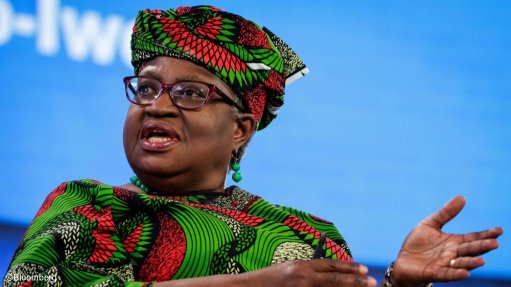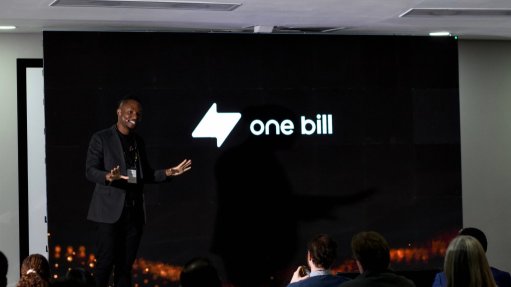Window of opportunity for SA business to fulfil its higher purpose?


NATION BUILDING: New framework needed to enable business to make profits ethically, invest wisely, grow sustainably, trade widely, pay taxes fairly and create safe and well-paid jobs
The role business has played in shaping South Africa’s democracy over the past 30 years and in supporting the 1996 Constitution’s objectives of “healing the divisions of the past” and “improving the quality of life for all” is neither clear-cut nor well-documented.
There have been periods of deep mistrust between government and business, while labour relations have also been fraught at times, epitomised by the violent Marikana miner’s strike and brutal massacre of 2012.
What is indisputable, however, is that business played an important role, alongside religious leaders, students and trade unions, in paving the way for the country’s landmark democratic elections of 1994 and in supporting the transition immediately thereafter.
Business’s sway over both political and policy direction has ebbed and flowed since then. This influence has been weakened at times by ongoing racial divisions; ones that are reflected not only in content but also in form, following the Black Business Council’s re-establishment in 2011 largely over differences with Business Unity South Africa over the nature and pace of transformation.
Organised business and individual business leaders have nevertheless tended to play particularly prominent roles during times of crisis.
Not all these interventions have proved successful: be it the joint campaign with labour in 1999 to oppose central bank gold sales and the International Monetary Fund’s scheme to sell gold to help Africa’s most heavily indebted countries; or in standing up effectively to the damaging State Capture project of the 2010s.
Business has, however, come to the aid of South African society and government at other critical periods, including during the Global Economic Crisis of 2008/09 and subsequent ‘Great Recession’. Business also played a crucial role in helping government navigate its way through the treacherous Covid pandemic and, more recently, in supporting efforts under Operation Vulindlela to tackle the loadshedding, freight logistics, crime and corruption crises.
Ultimately, however, the main contribution of business boils down to whether the individual companies and the entrepreneurs are making profits ethically, investing wisely, growing sustainably, trading widely, paying taxes fairly and creating safe and well-paid employment.
Without all these elements combined, business cannot play a truly constructive role in “improving the quality of life for all”. And living up to that Constitutional objective is also possible only in a context where the political, legal and policy frameworks are supportive.
Difficult Legacy
As retired business leader Bobby Godsell and former trade unionist James Motlatsi recalled in a joint article written in 2023 – when South Africans were in deep despair over corruption, collapsing service delivery and loadshedding – this framework was definitely not in place during the dying days of Apartheid: “Our economy was stagnant, growing at below the level of population growth in seven out of the ten years of the 1980s. Inflation ranged from a low of 11.5% in 1984 to a high of 18.6% in 1986. In 1985 the government had to reschedule the payment of its foreign debt. Sanctions and disinvestment campaigns caused the disappearance of household names such as Ford, IBM and Barclays Bank. Our politics was controlled by hate and fear.”
The framework improved after the peaceful transition, as well as President Nelson Mandela’s decisive and determined leadership around which South Africans rallied.
Despite the optimism and growth that accompanied the early democratic period, the framework was progressively undermined by a series of internal and external events that saw South Africa descend into its current low-growth trap.
The country has performed poorly when compared with its middle-income peers, growing at an average yearly pace of only 1.1% for more than a decade. This is far below the 5%-plus levels required for business to be in a position to invest at a pace and scale commensurate with South Africa’s need to create the jobs needed to make inroads into extreme levels of poverty and inequality.
Part of the cause for this dismal growth outcome is exogenous. As a small open economy, the Global Economic Crisis and the Covid pandemic hit South Africa especially hard.
However, the failure to bounce back from these external shocks was the result of the self-inflicted wounds of poor policy choices, even worse policy implementation, an egregious lack of accountability and the cancer of corruption.
In the process, many of the institutions that had been built or transformed during the early years of the transition were decimated to near dysfunctionality.
The highest-profile casualty was Eskom, which presided over power disruptions that were inconceivable only a decade-and-a-half earlier, when the utility was perceived as a jewel in South Africa’s State-owned enterprises crown and a world-class operator.
Stepping into the Breach
Despite high levels of mistrust and anger over the deterioration of political governance, business leaders stepped into the breach.
Building on the project-oriented interventions made during Covid, business moved decisively to support the reforms under way as part of Operation Vulindlela, with a particular focus on electricity, freight logistics, and crime and corruption.
Without question, the R254-billion bail-out of Eskom was the main trigger for the electricity turnaround, in that it provided the utility with the financial wherewithal to plan, procure and execute the maintenance needed to stabilise the coal fleet.
Nevertheless, the support Eskom received from the private sector through the National Energy Crisis Committee helped accelerate the recovery and place the country on a far firmer footing to attract the investment needed to reignite growth and stimulate employment.
Similar, albeit less advanced, progress is hoped for from the National Logistics Crisis Committee and reforms designed to facilitate greater private sector participation across the port and rail networks.
Without these signs of improvement, the Government of National Unity’s (GNU’s) goal of driving inclusive growth would lack all credibility.
The very fact that growth has been placed at the heart of the GNU’s agenda represents a genuine opportunity for business to step up and play a more muscular role on South Africa’s economic and social recovery. Doubly so, given the current acceptance in government that fiscal resources and public investment alone will simply not move the growth needle.
How business responds to what National Economic Development and Labour Council executive director Lisa Seftel describes as “a narrow window of opportunity” opened by renewed political and business confidence, will go a long way to determining whether South Africa breaks free from its current low-growth shackles.
Admittedly the GNU is a risky undertaking, and there is the potential for further political disruption once the participants decide that they can no longer set aside their significant ideological differences.
Nevertheless, it currently represents the best chance for rebuilding the political and policy frameworks needed for business to prosper and to fulfil its higher purpose of providing South Africans with the livelihoods they need to improve their lives and the lives of their families.
Comments
Announcements
What's On
Subscribe to improve your user experience...
Option 1 (equivalent of R125 a month):
Receive a weekly copy of Creamer Media's Engineering News & Mining Weekly magazine
(print copy for those in South Africa and e-magazine for those outside of South Africa)
Receive daily email newsletters
Access to full search results
Access archive of magazine back copies
Access to Projects in Progress
Access to ONE Research Report of your choice in PDF format
Option 2 (equivalent of R375 a month):
All benefits from Option 1
PLUS
Access to Creamer Media's Research Channel Africa for ALL Research Reports, in PDF format, on various industrial and mining sectors
including Electricity; Water; Energy Transition; Hydrogen; Roads, Rail and Ports; Coal; Gold; Platinum; Battery Metals; etc.
Already a subscriber?
Forgotten your password?
Receive weekly copy of Creamer Media's Engineering News & Mining Weekly magazine (print copy for those in South Africa and e-magazine for those outside of South Africa)
➕
Recieve daily email newsletters
➕
Access to full search results
➕
Access archive of magazine back copies
➕
Access to Projects in Progress
➕
Access to ONE Research Report of your choice in PDF format
RESEARCH CHANNEL AFRICA
R4500 (equivalent of R375 a month)
SUBSCRIBEAll benefits from Option 1
➕
Access to Creamer Media's Research Channel Africa for ALL Research Reports on various industrial and mining sectors, in PDF format, including on:
Electricity
➕
Water
➕
Energy Transition
➕
Hydrogen
➕
Roads, Rail and Ports
➕
Coal
➕
Gold
➕
Platinum
➕
Battery Metals
➕
etc.
Receive all benefits from Option 1 or Option 2 delivered to numerous people at your company
➕
Multiple User names and Passwords for simultaneous log-ins
➕
Intranet integration access to all in your organisation



















